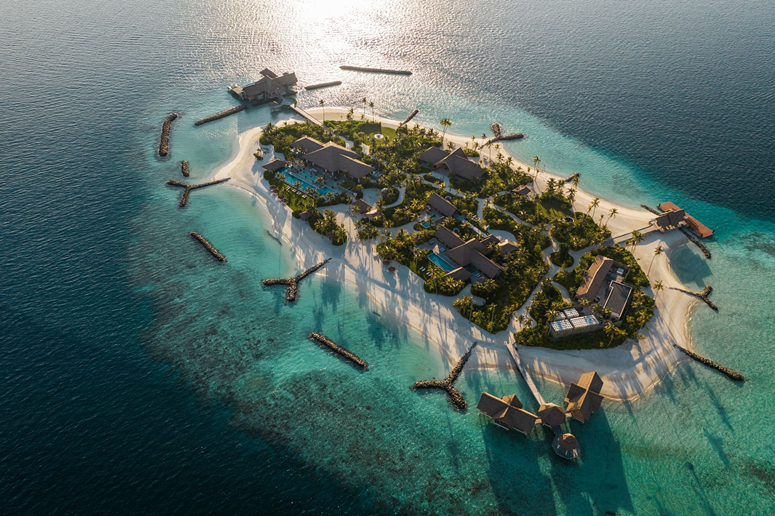Owning an island may sound like pure bliss, but paradise comes with paperwork. Every jurisdiction applies its own complex rules governing private island ownership, development, and environmental compliance.
For investors and developers working within 300 km of Singapore, understanding private island laws is essential before committing funds or breaking ground. These regulations protect ecosystems, ensure sustainable land use, and safeguard your investment from future disputes or fines.
If you’re considering buying, leasing, or developing a private island, start by familiarising yourself with the Kepri Estates — Private Islands guide. It explains everything from zoning and maritime rights to taxation, environmental obligations, and long-term ownership compliance—helping buyers avoid the most common pitfalls.
Ownership and Foreign Investment Rules
Ownership models vary globally. Some countries, such as Greece and Thailand, restrict foreign freehold ownership, instead offering long-term leases. In contrast, nations like Indonesia, the Bahamas, and Canada permit foreign investors to hold island property through corporate or government-approved structures, often with limitations on land size and development scope.
Understanding these frameworks is critical before acquisition. Freehold ownership grants full control, while leasehold or concession agreements impose limits and renewal conditions. Always verify land titles, marine boundaries, and indigenous rights, particularly in regions such as New Zealand where cultural heritage and public access laws apply.
Insurance and risk mitigation form another legal pillar. Storm, flood, and liability coverage are often mandatory before final approval of any development permit.
Maritime, Zoning, and Construction Regulations
Property rights typically end at the high-tide mark, while surrounding waters remain under state jurisdiction. Activities like docking, diving, or building jetties require maritime permits. Under the United Nations Convention on the Law of the Sea, nations control waters up to 12 nautical miles offshore—so “owning” a lagoon or reef usually isn’t possible without separate approval.
Zoning determines what you can build. Islands are categorised as Residential, Tourism/Resort, Conservation, or Agricultural, each carrying distinct restrictions. Resort-zoned parcels demand environmental impact assessments (EIAs) and adherence to density, setback, and design guidelines. Attempting to rezone land from conservation to commercial use often takes years and multiple public consultations.
Construction codes are strict. Designs must resist storms, salt corrosion, and earthquakes where applicable. Structural safety inspections are required at every phase, alongside renewable-energy and water-management permits. Remote logistics add complexity—every barge or helicopter load of materials typically needs prior authorisation.
Environmental Compliance and Sustainability
Environmental protection laws are at the heart of every island transaction. Before approval, investors must submit EIAs covering flora, fauna, marine life, and coastal erosion. Many jurisdictions enforce “green-cover retention” policies that preserve up to 70–90 percent of native vegetation. Waste disposal, sewage treatment, and freshwater sourcing are heavily monitored.
Resorts operating within marine conservation zones must meet eco-tourism standards, install blackout lighting to protect nesting turtles, and prohibit untreated discharge into the sea. Modern regulations also encourage climate-resilient design—elevated structures, renewable-energy integration, and minimal shoreline alteration.
Taxation and Fiscal Incentives
Tax treatment varies widely:
| Tax Type | Typical Consideration |
|---|---|
| Transfer Duties | High for foreign buyers; may exceed 10% of purchase price |
| Rental/Income Tax | Applies to short-term or commercial operations |
| Import Duties | Levied on all imported construction materials |
| Capital Gains Tax | Payable on future sale profits |
Some governments offset these costs through eco-investment incentives—reduced VAT on solar installations, carbon-credit benefits, or exemptions for projects aligned with national sustainability goals.
Permits, Licensing, and Access Rights
No island operates without licences. Building permits, water-use authorisations, tourism registrations, restaurant and liquor licences, and sometimes archaeological approvals are all standard. Missing a renewal can trigger fines or closure orders. In border areas, customs declarations are mandatory for all incoming guests or goods.
Public access laws often guarantee shoreline rights up to the high-water line, meaning absolute exclusion is rare. Understanding this balance between privacy and legality is essential for responsible ownership.
Infrastructure and Utility Compliance
Modern comfort requires off-grid self-sufficiency. Solar, wind, or hybrid systems must meet local noise and placement rules. Desalination plants and rainwater harvesting need quality certifications, while waste-treatment facilities must comply with environmental performance audits. Telecommunications and underwater cable connections demand visual-impact assessments and maritime clearance.
Comprehensive infrastructure planning, including backup systems and trained staff, not only ensures compliance but also enhances valuation and guest experience.
Future Compliance and Risk Management
Private island regulations evolve constantly. Climate adaptation, renewable-energy mandates, and marine-protection expansions are reshaping the legal landscape. Governments increasingly monitor compliance via satellite imaging and periodic inspections.
Savvy investors stay ahead by subscribing to regulatory updates, engaging local legal counsel, and maintaining transparent relationships with environmental authorities. Incorporating conservation easements into ownership agreements can even reduce tax exposure while guaranteeing long-term ecological preservation.
Key Takeaways
- Do your due diligence early. Investigate ownership structures, zoning classifications, and environmental limits before purchase.
- Follow the permits pathway. Construction, maritime, and rental operations all need official licensing.
- Plan for sustainability. Renewable energy, waste control, and biodiversity protection aren’t optional—they’re profitable differentiators.
- Account for taxation. Understand transfer, income, and capital-gains liabilities before structuring your purchase.
- Stay compliant. Regulations shift yearly; maintaining updated certifications preserves value and peace of mind.
Owning a private island offers unmatched freedom—but only when built on compliance, foresight, and respect for the environment. For expert assistance navigating complex regulations and unlocking viable investment pathways, contact Kepri Estates — Private Islands for end-to-end advisory support on due diligence, licensing, and sustainable development frameworks.










